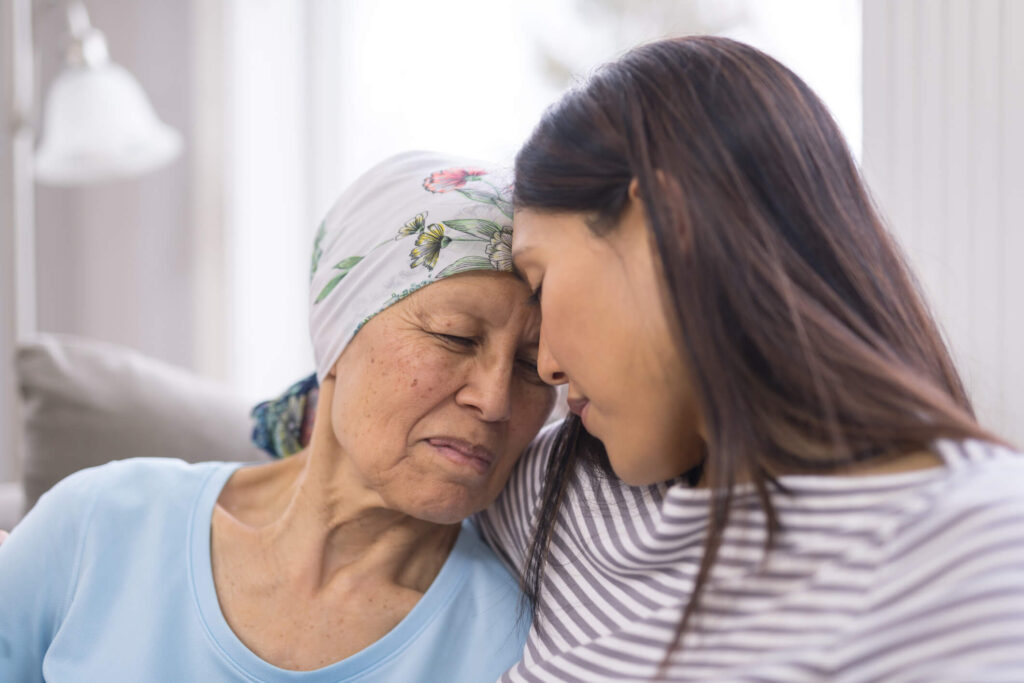Providing access to palliative care can promote positive outcomes, and avoid costly, unnecessary, and often unwanted treatment, for people with serious illnessmany of whom may be dually eligible for Medicare and Medicaid. States spend significant amounts of funding on their Medicaid programs, which covers about 80 million beneficiaries across the country including roughly 12 million Medicare-Medicaid dual eligible adults. Research has found relationships between palliative care consultation and lower hospital costs for Medicaid beneficiaries, indicating that palliative care can contain costs.
To advance palliative care, several states are developing a Medicaid community-based palliative care benefit. This benefit can help provide palliative care services outside of hospice, and without a six-month time requirement of a terminal illness or a requirement to no longer receive curative care. Thus, this benefit can reimburse for interdisciplinary palliative care teams to support individuals with serious illness throughout the continuum of care and not only at end of life.
State Approaches
In recent years, a number of states have developed legislation and/or regulations around the development of a Medicaid palliative care benefit.
California was the first state to develop a Medicaid palliative care benefit. Californias SB 1004 directed the Department of Health Care Licensure to create guidance for managed care organizations on the provision of palliative care services to members. This guidance includes defining eligibility criteria for services and the minimum palliative care services that plans must provide.
Hawaiis HB 722 established a bidding process for two culturally competent palliative care pilot programs. This legislation also established a requirement for the department of health to provide palliative care education, including promoting palliative care, referrals to palliative care, and collecting health care utilization data. Additionally, Hawaii has a multi-year effort to implement improved benefits for people with serious illness. Hawaii is developing work around implementing a community-based palliative care benefit through Hawaiis QUEST Integration Medicaid 1115 waiver. The state received philanthropic funding to hold stakeholder listening sessions and develop an actuarial model with a consultant.
Maines LD 1064 requires MaineCare to reimburse interdisciplinary care teams for palliative care services across home- and community-based settings. The department is also required to develop rules around implementation of reimbursement and quality measurement, using national-level standards for quality palliative care.
Oregons HB 2981 requires the Oregon Health Authority (OHA) to create a program to provide palliative care for individuals through coordinated care organizations, which is a network of health care providers across settings, such as physical, mental, and other providers, who have agreed to coordinate services at the local level for those who receive Medicaid. A patient qualifies for palliative care if they are diagnosed with a life-limiting serious illness that impacts the patients or the patients caregivers quality of life.
Colorado has developed regulations around palliative care standards in health care settings and was considering further approaches to developing a palliative care benefit. Colorado has put this development work on hold due to the COVID-19 pandemic.
Conclusion
For more information about state approaches to developing Medicaid palliative care benefits, view NASHPs Palliative Care Resource Hub, and sign up for the Palliative Care newsletter. If you are a state policymaker and your state is interested in creating a Medicaid palliative care benefit, please contact Salom Teshale, PhD, at steshale@nashp.org. This work is generously supported by The John A. Hartford Foundation.





